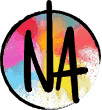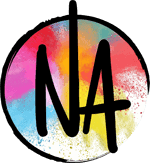Everyone has heard of hashtags (#), and the majority of us have used hashtags in our social media content in one way or another. But where did the term ‘hashtag’ originate from?
Back in the early years of Twitter (now X), in 2007, a user suggested that a hashtag could be used as a good way to organise tweets into groups or lists, which would mean that if the hashtagged term were searched, all tweets, including that hashtag, would be found.
Fast-forward to the present day, hashtags have become synonymous with social media posts and content across all social media platforms, not just Twitter.
But what is the best way to use hashtags on each of the platforms?
Hashtags on Twitter
A suggested method of using hashtags appropriately on Twitter is to search for existing current or trending hashtags before you tweet rather than making your own up. After all, what’s the point of hashtagging something that people aren’t searching for?
However, there are some occasions when you may like to create your own unique hashtag. For instance, you may be running an event, and it would be appropriate for it to have its own hashtag, which your attendees can add to their tweets – it’s a great way to build a trending topic on Twitter and also keep track of what people are saying about your event in real-time.
It’s also suggested that you don’t over-hashtag on Twitter. Whilst it is often tempting to add numerous hashtags at the end of a tweet, this won’t increase your reach or engagement – in fact, it’ll do the opposite. Stick to one or two decent and relevant hashtags within each tweet and keep an eye on your reach as a result.
Hashtags on Facebook
Facebook is a bit of a different story. For a start, the set-up of Facebook isn’t optimised to search for hashtags within posts, so a user would need to click on a hashtag they see in a post to see other similar posts, for example. Also, as many users’ Facebook accounts are set to private, if they use hashtags in their posts, they won’t be discoverable to anyone other than their friends.
On Instagram?
Instagram posts posted with numerous hashtags tend to perform well, although again, it is worth ensuring that the hashtags you use are relevant and authentic. Hashtags that reference the area where your picture was taken, your profession or business and relevant hashtags that are already trending tend to go down well.
Whatever social media platform you use, any hashtags you use need to be relevant and authentic to your brand. There is no point in hashtagging a term that has no bearing on what you are promoting – it will stand out and look out of place. It’s also important that your hashtags are short and easy to read; there’s nothing worse than hashtags which are really hard to read… #doyouknowwhatimeanitcanbereallyannoying
Hashtags on Linkedin
2020 saw hashtags being used regularly on Linkedin, with the option to follow hashtags and have relevant posts in their feeds.
Need some help with your social media management? We can help.






